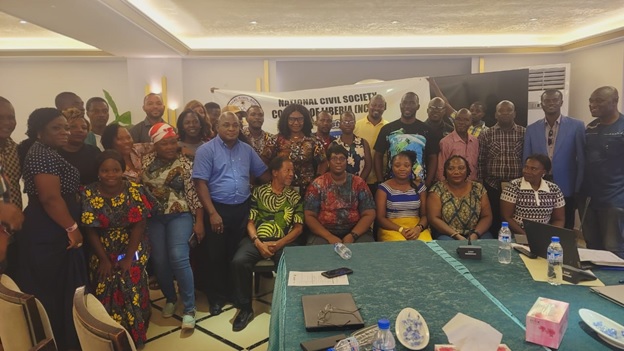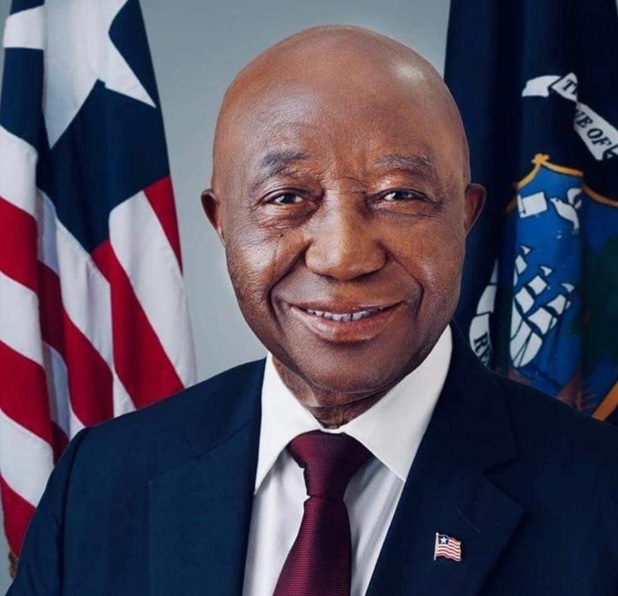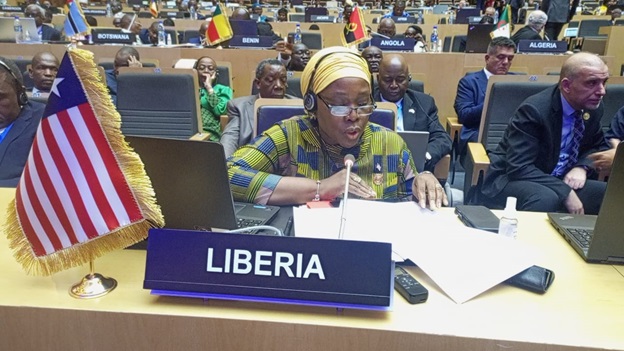By Emmanuel Weedee-Conway
MONROVIA – Ahead of a planned meeting with President Joseph Nyuma Boakai, various civil society groups working in different thematic areas under the auspices of the National Civil Society Council of Liberia (NCSCL) have come together to brainstorm on varying emerging national issues.
The meeting, which was held at the Boulevard Palace Hotel in Monrovia at weekend, is intended to give the CSOs better understanding about the current trend of event so as to enable them craft a position and some recommendations from an informed position.
Speaking at the opening of the one-day forum, the Chairperson of the CSO Council, Madam Loretta Alethea Pope-Kai, stated that the Council will make recommendations to the President based on the meeting’s outcome.
“We are here from our different thematic groups to have this meeting. From here we will speak to the President from an informed background. We cannot just sit and be silent as CSOs in the country because we have expertise in the different areas,” said Madam Pope-Kai.
“From here we will agree on what to present to the President. We will present our own issues and be proud because they come from us. Again, as I said, we are going to make informed recommendations to the President when we meet with him and we are confident that these recommendations will result into action,” added Madam Pope-Kai.
At the meeting, the Executive Director of Public Health Initiative of Liberia, Madam Joyce L. Kilikpo, who served as one of the panelists, outlined several emerging issues in the health sector including in infrastructural and human resource challenges.
According to Madam Kilkpo, most facilities are barely non-functional and while at the few functioning ones, utilizations of services are very poor.
“It would be devastating if we have an outbreak. Most health workers are demotivated and this is negatively impacting the sector with the low retention of health workers in the sector. There is also poor quality of health services at various centers. The diagnostic services are poor so many people seek the unconventional means when their cases cannot be diagnosed; they take on the belief that someone is bewitching them since their sickness cannot be diagnosed. In the end, they go to the churches instead of continuing with the clinic or hospital,” she noted.
She disclosed that almost 80 percent of the health budget is financed by donors, adding: “The government should go beyond statement. We must move from curative to preventive by empowering primary health centers.”
Mr. Lawrence Yealue, Executive Director of Integrity Lab, cited the lack of integrity in the Constitution as one of the major ills confronting the Liberian society.
“The police and other security institution are under-funded and we so have weak security institutions who are not giving total protection. There is a ghetto near every police station so our key issue about drugs is insecurity. The NSA and all security sectors must be audited.”







